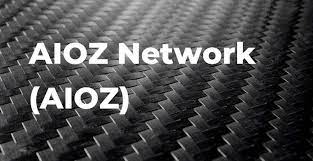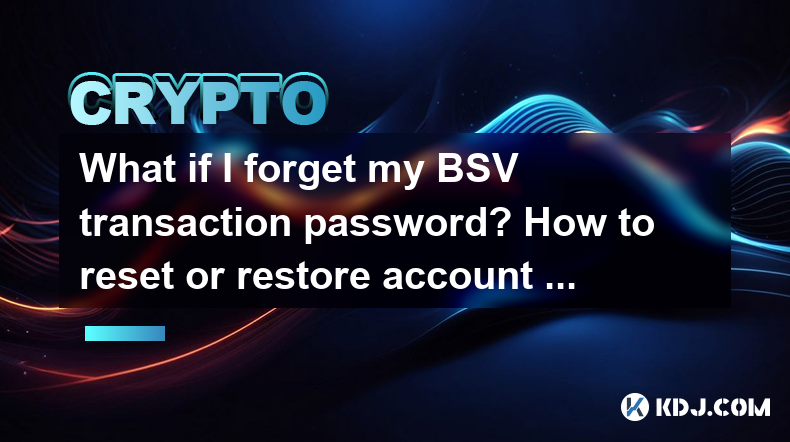-
 Bitcoin
Bitcoin $95,628.2865
-0.75% -
 Ethereum
Ethereum $1,830.6468
-0.38% -
 Tether USDt
Tether USDt $1.0002
-0.01% -
 XRP
XRP $2.1740
-0.83% -
 BNB
BNB $589.0028
-1.78% -
 Solana
Solana $146.4149
-0.60% -
 USDC
USDC $1.0000
0.01% -
 Dogecoin
Dogecoin $0.1724
-2.81% -
 Cardano
Cardano $0.6859
-3.65% -
 TRON
TRON $0.2480
0.94% -
 Sui
Sui $3.2783
-1.21% -
 Chainlink
Chainlink $14.0217
-2.11% -
 UNUS SED LEO
UNUS SED LEO $9.0427
1.03% -
 Avalanche
Avalanche $20.0123
-4.09% -
 Stellar
Stellar $0.2667
-2.32% -
 Toncoin
Toncoin $3.0560
-1.65% -
 Shiba Inu
Shiba Inu $0.0...01275
-2.48% -
 Hedera
Hedera $0.1771
-2.93% -
 Bitcoin Cash
Bitcoin Cash $355.9832
-2.74% -
 Hyperliquid
Hyperliquid $20.3748
-4.33% -
 Litecoin
Litecoin $86.4359
-0.61% -
 Polkadot
Polkadot $3.9420
-2.83% -
 Dai
Dai $1.0001
0.01% -
 Bitget Token
Bitget Token $4.3478
-0.92% -
 Monero
Monero $275.0026
-1.69% -
 Ethena USDe
Ethena USDe $1.0004
-0.01% -
 Pi
Pi $0.5932
1.17% -
 Pepe
Pepe $0.0...08076
-2.07% -
 Aptos
Aptos $5.1147
-2.17% -
 Uniswap
Uniswap $5.0374
-1.50%
How to buy AIOZ coins safely and reliably
To ensure a secure and successful AIOZ coin purchase, meticulously evaluate trustworthy cryptocurrency exchanges based on factors like robust security measures, impeccable reputation, ample trading volume, and competitive fees.
Dec 07, 2024 at 07:38 pm

Step 1: Choosing a Reputable Cryptocurrency Exchange
To securely purchase AIOZ coins, selecting a trustworthy and reputable cryptocurrency exchange is paramount. Consider factors such as:
- Security: Assess the exchange's security measures (e.g., two-factor authentication, SSL encryption) to protect against unauthorized access and hacking.
- Reputation: Research the exchange's online presence, reviews, and industry standing to gauge its reliability and customer satisfaction.
- Trading Volume: Choose an exchange with a high trading volume for AIOZ coins, as it ensures liquidity and minimizes price volatility during transactions.
- Fees: Compare the exchange's fees (e.g., trading fees, deposit fees, withdrawal fees) to minimize the cost of buying AIOZ coins.
Step 2: Creating an Account and KYC Verification
Once you select a reliable exchange, proceed to create an account. The process typically involves providing your email address, creating a password, and verifying your identity.
- Identity Verification (KYC): To comply with anti-money laundering and know-your-customer (KYC) regulations, most reputable exchanges require you to provide identification documents such as a passport or driver's license.
- Two-Factor Authentication (2FA): Enhance the security of your account by enabling two-factor authentication (2FA), which adds an extra layer of protection to prevent unauthorized access.
Step 3: Depositing Funds into Your Account
To purchase AIOZ coins, you need to fund your exchange account. This can be done through various methods depending on the exchange:
- Bank Transfer: Depositing funds from your bank account typically takes longer (1-3 business days) but may offer lower fees.
- Credit/Debit Card: Purchasing AIOZ coins with a credit or debit card is convenient but may incur higher fees compared to other methods.
- Cryptocurrency: If you already own cryptocurrency, you can transfer it to your exchange account to purchase AIOZ coins.
Step 4: Placing a Buy Order for AIOZ Coins
Once your account is funded, you can proceed to place a buy order for AIOZ coins. Locate the AIOZ trading pair (e.g., AIOZ/USDT, AIOZ/BTC) and enter the following information:
- Order Type: Choose the type of order you want to place, such as a market order (executed at the current market price) or a limit order (executed at a specified price).
- Order Amount: Indicate the amount of AIOZ coins you wish to purchase.
- Price: For limit orders, specify the price at which you want to buy AIOZ coins.
- Submit Order: Once you enter the required information, click the "Buy" or "Place Order" button to execute the transaction.
Step 5: Storing Your AIOZ Coins Safely
After successfully purchasing AIOZ coins, it's essential to store them securely to protect them from theft or loss. Consider the following options:
- Hardware Wallet: Hardware wallets, such as Ledger or Trezor, offer the highest level of security for storing cryptocurrencies by generating private keys offline.
- Software Wallet: Software wallets, like MetaMask or Trust Wallet, are convenient for managing and storing cryptocurrency but provide less security than hardware wallets.
- Exchange-Held Wallet: Storing AIOZ coins in an exchange wallet is convenient but less secure than hardware or software wallets. It's recommended to withdraw coins to a personal wallet for long-term storage.
Disclaimer:info@kdj.com
The information provided is not trading advice. kdj.com does not assume any responsibility for any investments made based on the information provided in this article. Cryptocurrencies are highly volatile and it is highly recommended that you invest with caution after thorough research!
If you believe that the content used on this website infringes your copyright, please contact us immediately (info@kdj.com) and we will delete it promptly.
- The World of Meme Coins Isn’t Just Hype—It’s a Storm of Opportunity
- 2025-05-05 03:20:14
- FloppyPepe (FPPE) Is Positioning Itself to Outshine Pepe (PEPE) and Dogecoin (DOGE)
- 2025-05-05 03:20:14
- The crypto landscape is buzzing with activity as Qubetics, Gala, and SUI make significant strides
- 2025-05-05 03:15:12
- A long-inactive Ethereum Initial Coin Offering (ICO) participant has resumed activity
- 2025-05-05 03:15:12
- Qubetics' Breakout Surprised Many, It Might Be the Most Popular Cryptocurrency to Watch
- 2025-05-05 03:11:07
- Pre-A.I.M. at New Markets as MicroStrategy Raises $200M to Buy More Bitcoin
- 2025-05-05 03:11:07
Related knowledge

BSV transaction fees suddenly increased? How to adjust the handling fee to save costs?
May 02,2025 at 06:42am
Understanding BSV Transaction FeesBSV (Bitcoin SV) aims to fulfill the original vision of Bitcoin as a peer-to-peer electronic cash system. One of the key elements in this system is the transaction fee, which compensates miners for including transactions in the blockchain. Recently, users have noticed a sudden increase in BSV transaction fees, which can...

Does BSV transaction require real-name authentication? Is anonymous trading feasible?
May 03,2025 at 03:14pm
The question of whether BSV (Bitcoin SV) transactions require real-name authentication and whether anonymous trading is feasible is a complex one, deeply intertwined with the broader dynamics of cryptocurrency regulations and blockchain technology. Let's delve into these aspects to provide a comprehensive understanding. Understanding BSV and Its Transac...

How to solve the high slippage of BSV transactions? How to choose between limit and market orders?
May 02,2025 at 09:01pm
High slippage can be a significant concern for traders dealing with Bitcoin SV (BSV) transactions. Slippage refers to the difference between the expected price of a trade and the price at which the trade is actually executed. This can occur in fast-moving markets or when there is low liquidity. To address this issue, understanding the mechanics of slipp...

What if BSV node synchronization is slow? How to optimize local wallet performance?
May 03,2025 at 04:35pm
When dealing with BSV (Bitcoin SV) node synchronization and optimizing local wallet performance, it's crucial to understand the underlying issues and implement effective solutions. Slow synchronization and poor wallet performance can significantly hinder your experience with the BSV network. This article will delve into the reasons behind slow BSV node ...

How to check BSV transaction records? How to use the blockchain browser?
May 03,2025 at 06:50am
Checking BSV (Bitcoin SV) transaction records and using a blockchain browser are essential skills for anyone involved in the cryptocurrency space. These tools allow you to verify transactions, check wallet balances, and understand the flow of funds on the blockchain. This article will guide you through the process of checking BSV transaction records and...

What if I forget my BSV transaction password? How to reset or restore account permissions?
May 02,2025 at 02:49pm
Forgetting your BSV (Bitcoin SV) transaction password can be a stressful experience, but there are steps you can take to reset or restore your account permissions. This article will guide you through the process, ensuring you understand each step and potential solutions available to you. Understanding BSV Transaction PasswordsBSV transaction passwords a...

BSV transaction fees suddenly increased? How to adjust the handling fee to save costs?
May 02,2025 at 06:42am
Understanding BSV Transaction FeesBSV (Bitcoin SV) aims to fulfill the original vision of Bitcoin as a peer-to-peer electronic cash system. One of the key elements in this system is the transaction fee, which compensates miners for including transactions in the blockchain. Recently, users have noticed a sudden increase in BSV transaction fees, which can...

Does BSV transaction require real-name authentication? Is anonymous trading feasible?
May 03,2025 at 03:14pm
The question of whether BSV (Bitcoin SV) transactions require real-name authentication and whether anonymous trading is feasible is a complex one, deeply intertwined with the broader dynamics of cryptocurrency regulations and blockchain technology. Let's delve into these aspects to provide a comprehensive understanding. Understanding BSV and Its Transac...

How to solve the high slippage of BSV transactions? How to choose between limit and market orders?
May 02,2025 at 09:01pm
High slippage can be a significant concern for traders dealing with Bitcoin SV (BSV) transactions. Slippage refers to the difference between the expected price of a trade and the price at which the trade is actually executed. This can occur in fast-moving markets or when there is low liquidity. To address this issue, understanding the mechanics of slipp...

What if BSV node synchronization is slow? How to optimize local wallet performance?
May 03,2025 at 04:35pm
When dealing with BSV (Bitcoin SV) node synchronization and optimizing local wallet performance, it's crucial to understand the underlying issues and implement effective solutions. Slow synchronization and poor wallet performance can significantly hinder your experience with the BSV network. This article will delve into the reasons behind slow BSV node ...

How to check BSV transaction records? How to use the blockchain browser?
May 03,2025 at 06:50am
Checking BSV (Bitcoin SV) transaction records and using a blockchain browser are essential skills for anyone involved in the cryptocurrency space. These tools allow you to verify transactions, check wallet balances, and understand the flow of funds on the blockchain. This article will guide you through the process of checking BSV transaction records and...

What if I forget my BSV transaction password? How to reset or restore account permissions?
May 02,2025 at 02:49pm
Forgetting your BSV (Bitcoin SV) transaction password can be a stressful experience, but there are steps you can take to reset or restore your account permissions. This article will guide you through the process, ensuring you understand each step and potential solutions available to you. Understanding BSV Transaction PasswordsBSV transaction passwords a...
See all articles




















































































